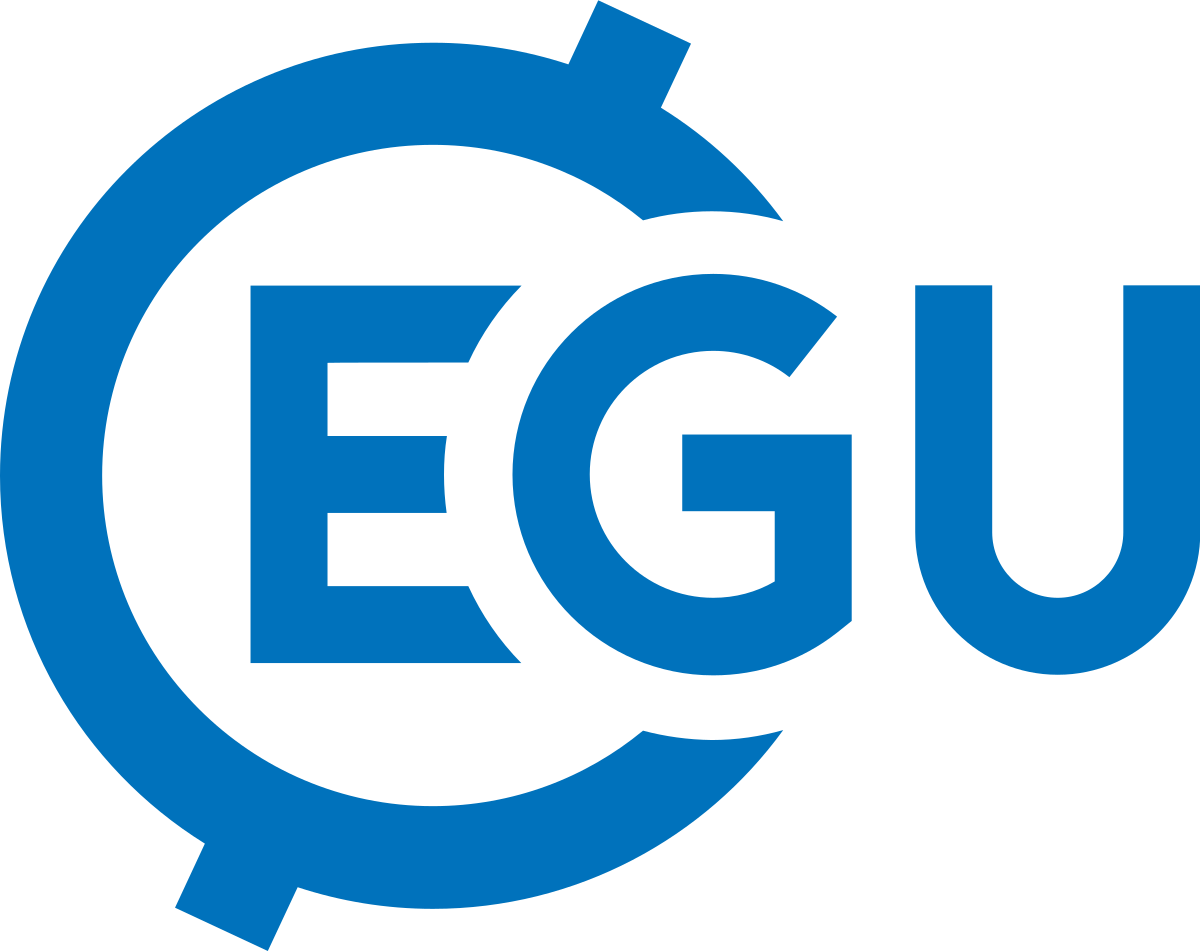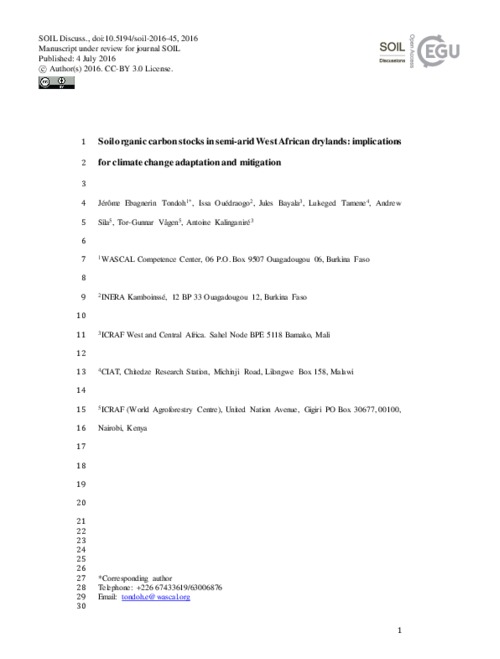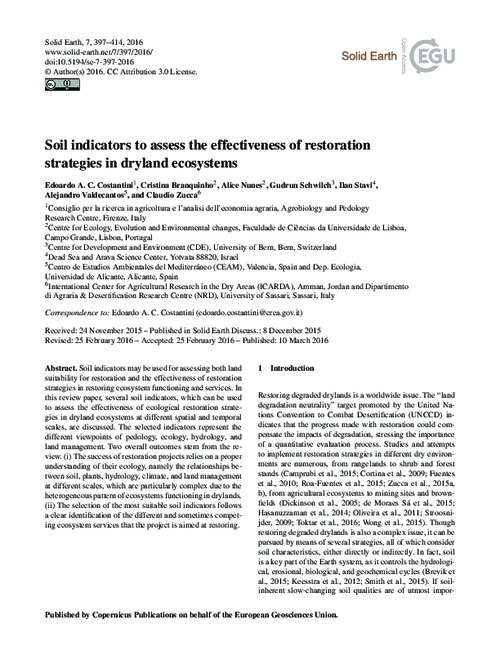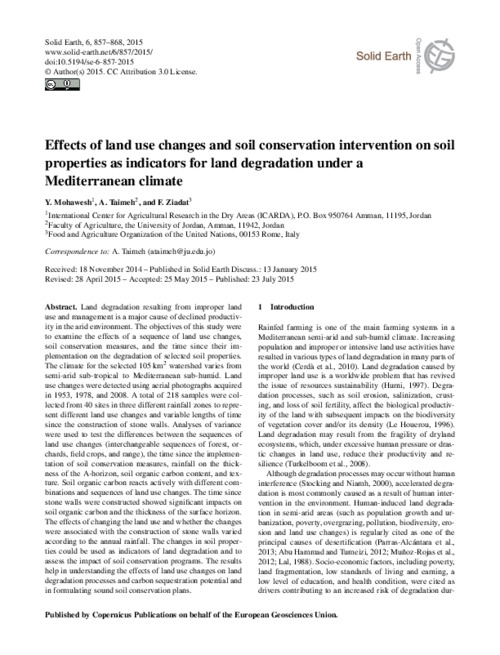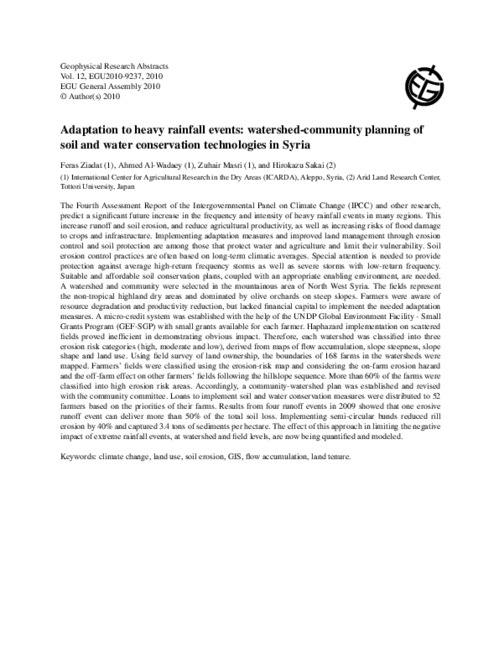Location
EGU, the European Geosciences Union, is Europe’s premier geosciences union, dedicated to the pursuit of excellence in the Earth, planetary, and space sciences for the benefit of humanity, worldwide. It was established in September 2002 as a merger of the European Geophysical Society (EGS) and the European Union of Geosciences (EUG), and has headquarters in Munich, Germany.
Members:
Resources
Displaying 1 - 4 of 4Soil organic carbon stocks in semi-arid West African drylands: implications for climate change adaptation and mitigation
In the West African drylands, SOC sequestration is seen as one of the prominent strategies to both enhance the resilience of agro-ecosystems and mitigate global greenhouse effects. However, there is a dearth of baseline data that impede the design of site-appropriate recommended management practices (RMPs) to improve and sustain SOC accrual. In this study, the Land Degradation Surveillance Framework (LDSF), a nested hierarchical sampling design was used to assess SOC and its spatial variability across the semi-arid zones of Ghana (Lambussie), Burkina Faso (Bondigui) and Mali (Finkolo).
Soil indicators to assess the effectiveness of restoration strategies in dryland ecosystems
Soil indicators may be used for assessing both land
suitability for restoration and the effectiveness of restoration
strategies in restoring ecosystem functioning and services. In
this review paper, several soil indicators, which can be used
to assess the effectiveness of ecological restoration strategies
in dryland ecosystems at different spatial and temporal
scales, are discussed. The selected indicators represent the
different viewpoints of pedology, ecology, hydrology, and
land management. Two overall outcomes stem from the review.
Effects of land use changes and soil conservation intervention on soil properties as indicators for land degradation under a Mediterranean climate
Land degradation resulting from improper land use and management is a major cause of declined productivity
in the arid environment. The objectives of this study were to examine the effects of a sequence of land use changes,
soil conservation measures, and the time since their implementation on the degradation of selected soil properties.
The climate for the selected 105 km2 watershed varies from semi-arid sub-tropical to Mediterranean sub-humid. Land
Adaptation to heavy rainfall events: watershed-community planning of soil and water conservation technologies in Syria
The Fourth Assessment Report of the Intergovernmental Panel on Climate Change (IPCC) and other research, predict a significant future increase in the frequency and intensity of heavy rainfall events in many regions. This increase runoff and soil erosion, and reduce agricultural productivity, as well as increasing risks of flood damage to crops and infrastructure. Implementing adaptation measures and improved land management through erosion control and soil protection are among those that protect water and agriculture and limit their vulnerability.

